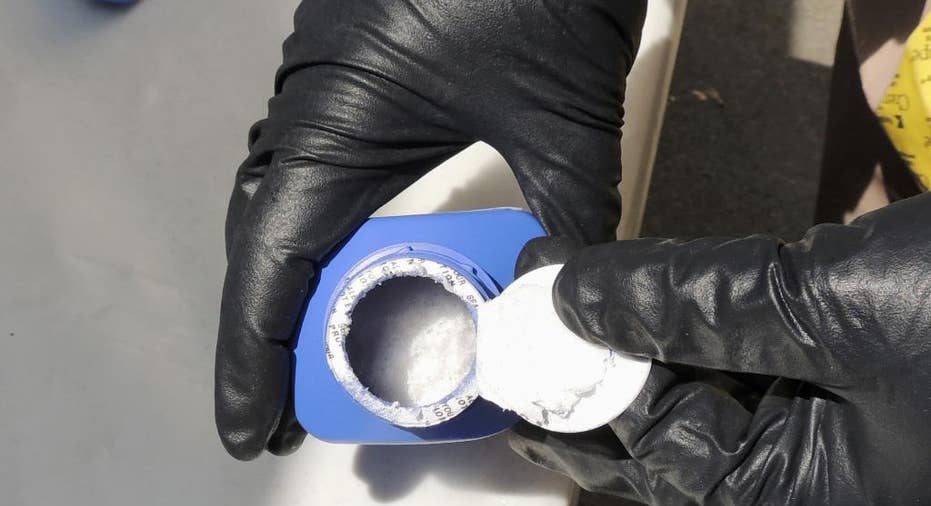Why would anyone use a chemical weapon to make drugs? Money

SHANGHAI – This summer, carfentanil — one of the most potent opioids on the planet — hit the streets of North America. Many users who thought they were taking heroin actually injected or snorted a substance that has until recently been viewed as a chemical weapon . First responders pumped hundreds of dying, bluish people full of the antidote naloxone to try to make them breathe again.
Legally used as a tranquilizer for large animals like bears and elephants, carfentanil is so potent that an amount smaller than a poppy seed can kill a person. How such a toxic substance made its way into global narcotics supply chains is a matter of economics, and desperation.
Carfentanil is 100 times more potent than fentanyl, a related drug that increasingly has been mixed into narcotics such as heroin. But carfentanil is only slightly more expensive than fentanyl, so it can be cut into much larger volumes, creating stronger, cheaper highs.
"There's an advantage to the drug distributor: They make more money," said Russell Baer, a special agent at the U.S. Drug Enforcement Administration in Washington. Addicts, meanwhile, "want the best high at the cheapest price and they're willing to take whatever risks are involved," he said.
Carfentanil is typically sold as a powder. Mixing it poorly into other drugs can create lethal hotspots of concentrated carfentanil, presenting enormous risks for users.
Those concerned include drug users themselves. In online forums, much of the talk is about carfentanil as a threat, not a means to an epic high.
One user was so distressed when he received a package labeled carfentanil — a free sample from his supplier — that he asked for advice on Reddit on how to dispose of it safely. He worried that flushing it down the toilet "carried the risk of harming wildlife down the line."
"Honestly," wrote another, "the only use I could think of would be to kill people."
"Dealers are just starting to learn how to volumetrically dose these fentanyl POISON bags, but killing us in the process. We are their guinea pigs," wrote a third.
None of the posters responded to Associated Press requests for further comment.



















